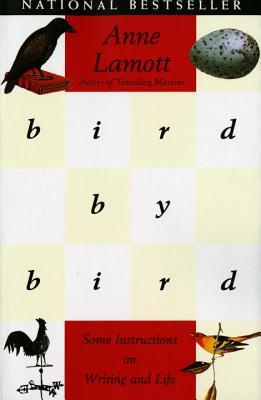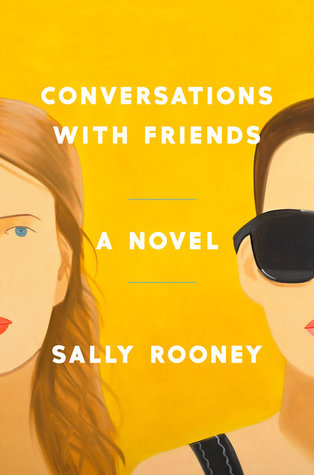advice/living
Sally Rooney,
Patricia Highsmith,
Jonathan Franzen,
Ursula K. Le Guin,
Alyssa Battistoni,
Richard Seymour,
Brandy Jensen,
Natasha Lennard,
n+1,
Jedediah Purdy
just like life advice. ideally philosophical rather than pragmatic
All that I know about the relationship between publication and mental health was summed up in one line of the movie Cool Runnings, which is about the first Jamaican bobsled team. The coach is a four-hundred-pound man who had won a gold in Olympic bobsledding twenty years before but has been a complete loser ever since. The men on his team are desperate to win an Olympic medal, just as half the people in my classes are desperate to get published. But the coach says, "If you’re not enough before the gold medal, you won’t be enough with it." You may want to tape this to the wall near your desk.
I closed my eyes. Things and people moved around me, taking positions in obscure hierarchies, participating in systems I didn't know about and never would. A complex network of objects and concepts. You live through certain things before you understand them. You can't always take the analytical position.
To look at oneself and find it hideous, what a job! But then, when she hadn’t been hideous, had she sat around and stared at herself like this? Not much! A proper body’s not an object, not an implement, not a belonging to be admired, it’s just you, yourself. Only when it’s no longer you. but yours, a thing owned, do you worry about it — Is it in good shape? Will it do? Will it last?
aaaaahhh
How brave of you to go on, to work, to write, in prison, after such a defeat for the Movement, after your partner’s death, people had used to say. Damn fools. What else had there been to do? Bravery, courage — what was courage? She had never figured it out. Not fearing, some said. Fearing yet going on, others said. But what could one do but go on? Had one any real choice, ever?
To die was merely to go on in another direction.
It was hegemony, Stuart Hall argued in 1983, that was key to understanding the disappointment of his own generation — why Thatcher and the new right had triumphed in remaking common sense after a decade of labor union revolt. Hegemony shaped how people acted when they weren’t thinking about it, what they thought was right and wrong, what they imagined the good life to be. A hegemonic project had to “occupy each and every front” of life, “to insert itself into the pores of the practical consciousness of human beings.” Thatcherism had understood this better than the left. It had “entered the struggle on every single front on which it calculated it could advance itself,” put forth a “theory for every single arena of human life,” from economics to language, morality to culture. The domains the left dismissed as bourgeois were simply the ones where the ruling class was winning. Yet creating hegemony was “difficult work,” Hall reminded us. Never fully settled, “it always has to be won.”
In other words, there is no economic deus ex machina that will bring the revolution. There are still people, in their stubborn, contradictory particularities, as they exist in concrete space and time. It is up to you to figure out how to act together, or not; how to find common ground, or not. Gramsci and Hall insist that you must look relentlessly at things and people as they are, face your prospects with brutal honesty, and act in ways that you think can have an effect. In these ways they are an organizer’s theorists.
It’s not easy to be the site of a battle for hegemony. It’s not a beatific Whitmanesque “I contain multitudes”; it’s an often painful struggle among your competing selves for dominance. You have one body and twenty-four hours in a day. An organizer asks what you’ll do with them, concretely, now. You may not like your own answer. Your inner Thatcherite will raise its voice. You can’t kill it off entirely; you will almost certainly find that it’s a bigger part of you than you thought. But organizing burrows into the pores of your practical consciousness and asks you to choose the part of yourself that wants something other than common sense. It’s unsettling. It can be alienating. And yet I also often felt I was finally reconciling parts of myself I’d tried to keep separate — what I thought, what I said, what I did. To organize, and to be organized, you have to keep in mind Hall’s lesson: there is no true or false consciousness, no true self that organizing discovers or undoes. You too, Hall reminds us, were made by this world you hope to change. The more distant the world you want to live in is from the world that exists, the more deeply you yourself will feel this disjuncture. “I’m not cut out for this,” people often say when they struggle with organizing. No one is: one isn’t born an organizer, but becomes one.
After making my way through some pine groves and alder scrub I came to the bog. No sooner had my ear caught the hum of diptera around me, the guttural cry of a snipe overhead, the gulping sound of the morass under my foot, than I knew I would find here quite special arctic butterflies, whose pictures, or, still better, nonillustrated descriptions I had worshiped for several seasons. And the next moment I was among them. Over the small shrubs of bog bilberry with fruit of a dim, dreamy blue, over the brown eye of stagnant water, over moss and mire, over the flower spikes of the fragrant bog orchid (the nochnaya fialka of Russian poets), a dusky little Fritillary bearing the name of a Norse goddess passed in low, skimming flight. Pretty Cordigera, a gemlike moth, buzzed all over its uliginose food plant. I pursued rose-margined Sulphurs, gray-marbled Satyrs. Unmindful of the mosquitoes that furred my forearms, I stooped with a grunt of delight to snuff out the life of some silver-studded lepidopteron throbbing in the folds of my net. Through the smells of the bog, I caught the subtle perfume of butterfly wings on my fingers, a perfume which varies with the species—vanilla, or lemon, or musk, or a musty, sweetish odor difficult to define. Still unsated, I pressed forward. At last I saw I had come to the end of the marsh. The rising ground beyond was a paradise of lupines, columbines, and pentstemons. Mariposa lilies bloomed under Ponderosa pines. In the distance, fleeting cloud shadows dappled the dull green of slopes above timber line, and the gray and white of Longs Peak.
I confess I do not believe in time. I like to fold my magic carpet, after use, in such a way as to superimpose one part of the pattern upon another. Let visitors trip. And the highest enjoyment of timelessness—in a landscape selected at random—is when I stand among rare butterflies and their food plants. This is ecstasy, and behind the ecstasy is something else, which is hard to explain. It is like a momentary vacuum into which rushes all that I love. A sense of oneness with sun and stone. A thrill of gratitude to whom it may concern—to the contrapuntal genius of human fate or to tender ghosts humoring a lucky mortal.
We live uneasily the only way we know how, ever more anxious that the earth under our feet is turning to quicksand, while a fierce wind howls at the horizon. Hauling oneself out of one’s elemental presence-ism and presentism is nearly impossible: all the institutions, structures, and systems we live within are predicated on the indefinite persistence of the present. These are the structures and systems and institutions that give our choices meaning, connect us with each other, allow us to see our lives not as transient, atomistic accidents but as coherent, organic parts of a greater whole. Yet as the world changes around us, we are increasingly aware that something is wrong: the future isn’t what it used to be, and the temporal stability we depend on to give our present reality the illusion of persistence seems less and less reliable. We begin to wonder whether thinking fifty, thirty, twenty, or even five years into the future makes any sense, since the global transformation that seems to be steadily approaching—whether for good or for ill, through revolution or through collapse—will overturn everything we hold dear. We find ourselves existentially threatened by ecological collapse and climate change not only in the material sense that it will lead to vast human suffering and billions of deaths but also in a philosophical or psychological sense, in that the promise of imminent catastrophe—or revolution—threatens to make our present day-to-day life meaningless.
fuck
And what of the fascisms in each of us who would be anti-fascist? “Kill the cop inside your head!” goes the anarchist dictum. As philosopher John Protevi noted in his 2000 essay, following Deleuze and Guatarri, “A thousand independent and self-appointed policemen do not make a Gestapo, though they may be a necessary condition for one.” How do we remove ourselves as participants in such a condition? Easier said than done. We cannot simply be anti-fascist; we must also practice and make better habits, forms of life. Rather than as a noun or adjective, anti-fascist as a gerund verb: a constant effort of anti-fascisting against the fascisms that even we ourselves uphold. Working to create nonhierarchical ways of living, working to undo our own privileges and desires for power. The individualized and detached Self, the over-codings of family-unit normativity, the authoritarian tendency of careerism—all of them paranoiac sites of micro-fascism in need of anti-fascist care. Again, easier said than done. But better than a faulty approach to anti-fascism that frames it as some pure position, when it is anything but. We act against fascists in the knowledge we need to act against ourselves, too. The strategy is always to create consequences for living a fascist life and seek anti-fascist departures.
I want to look, really look, at the world—but I find I do not want to look at it as an explanation for what is wrong with me. I don’t want to be forgiven. I want unkindness, from myself and from the world, because it is unkindness that has to be reckoned with, that makes me feel awake. I want to be punished; I want the stimulation of struggle. But it seems in order to do this I have to consider that the world does not owe me anything. I want to look at the world because despite the fact that it is unkind, it is also interesting, and full, and endlessly entertaining.
I forget this, during my worst winter and my most unmotivated months; I forget that there are stories to be chased that have nothing to do with me. I ask my therapist to help me remember these stories, these reasons to get out of bed in the morning. I ask her to help me re-want to learn about the world again—about literature, and philosophy, and ideas that continue to exist and exhilarate no matter how much money I have or will ever have, no matter how overworked I am and will certainly continue to be forever. She says that I am focusing on other things because I do not want to talk about myself: about how the boy I loved that winter had disappeared, about why I am fighting with my mother or about the fact that I am drowning in job applications. I need to do something nice for myself, she says, over and over again.








